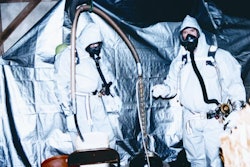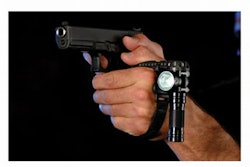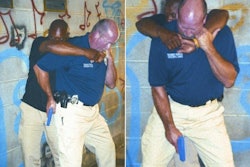"Some people try to find things in this game that don't exist but football is only two things-blocking and tackling." — Vince Lombardi
I love football. I couldn't play worth a darn in high school, thus my nickname: the Tin Man. My teammates would say that, like the character in the Wizard of Oz, I ran so slowly that it looked like I needed oil on my joints. Still, I have carried forward a serious love for the game. The implications of football in American life run deep. Football is analogous to many things: warfare, battle, teamwork, discipline, mental toughness, physical courage, strategy, tactics, and of course, leadership.
Also, like many things in life, football can be broken down into the most basic elements. And no matter how complicated things get, football cannot be played well unless those basic requirements can be done well. Lombardi broke it down into blocking and tackling because those are the only two things that are required at some point from every position. Not everybody on a football team passes and catches-only certain positions do-but everyone eventually has to block and tackle.
I find it interesting that as technologically advanced as football has become over the years, Vince Lombardi's quote is timeless. Today's teams run complicated offenses that are complemented by computers, specialized software, videos, and overhead photos. Teams take the fields in domed stadiums, quarterbacks communicate with their coaches via mics in their helmets, and all have immediate access to the most updated statistics and information. Still, winning most often comes back to which team collectively blocks and tackles the best. In other words, who can execute the basics the most consistently?
We also have a lot of fancy equipment and technology nowadays in police work. Computer-aided dispatch and crime statistics, video in cars, and high-speed weapons and gear are among the many things that are supposed to help us be better cops. Leaders can be in communication with subordinates via radio, cell phone, e-mail, text message, and mobile digital terminal (car-to-car computers) among many other media. Chiefs often send videos of themselves speaking about issues to roll calls.
But for lieutenants and sergeants there is no real substitution for being there, is there? Police leadership basics mean being there, wherever that is, for your officers. Preferably it means being in the field as much as possible and in the station only when absolutely necessary. To do so is to win half the battle.
What is the other half? When you are leading by being there, what should you be stressing to the officers you lead? Start with this: Be on time, be in the proper uniform with all your gear serviceable and clean, and be ready to work. Funny how many officers I still see walking in late to roll call, uniforms in disarray, weapons dirty, with unserviceable gear or missing equipment. The leadership basics required to remedy these problems are to set your expectations early and often, hold officers accountable for their actions (or inactions), conduct frequent inspections, and demand excellence and professionalism at all times from everyone.
What makes football so intense is the possibility that you can get hurt if you are not physically and mentally prepared. If your equipment is not serviceable or it is not worn properly, the same results. Football is a very public event and everybody sees when you make mistakes. Are you seeing the parallels to law enforcement? Most of the time, the worst thing that happens to football players is that they lose the game and have to come back and try again next game. In law enforcement, we can't afford to lose the games we play.
The coaches' job is to prepare their players to be the best they can be and this often starts with perfecting the basics. Good coaches are able to translate individual perfection of the basics into perfection of teamwork between players at different positions. Great coaches are able to capitalize on perfection of these individual and team basics to implement their winning system throughout an organization to produce extraordinary results.
Now, substitute "coaches" with "police leaders" and think about where we are taking our team. What are you doing to move your team forward?











